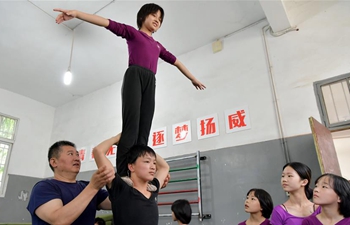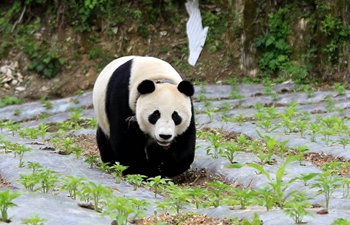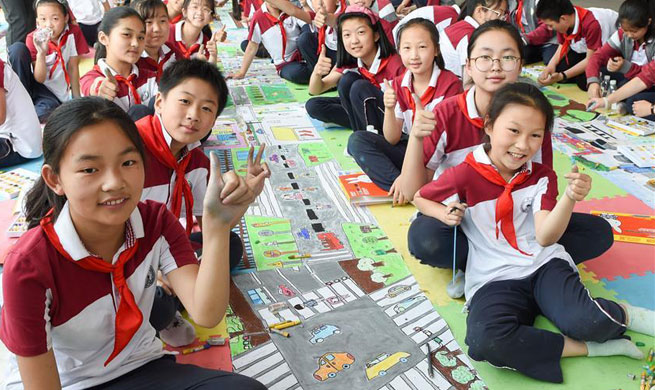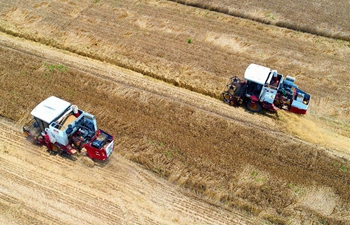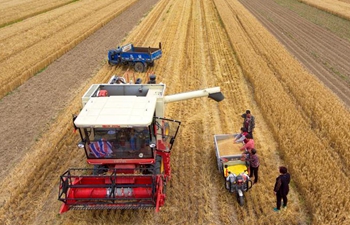TIANJIN, June 2 (Xinhua) -- Wangkou Town, one of China's largest production bases for roasted seeds and nuts, has converted all its roasting equipment from coal to natural gas over the past two years.
Wangkou, in Tianjin Municipality, is famous for its unique traditional recipes for roasted seeds and nuts, a popular snack among Chinese.
The 218 companies in Wangkou annually produce 600,000 tonnes of roasted seeds and nuts, worth 6 billion yuan (about 940 million U.S. dollars), accounting for 20 percent of output nationwide.
More than 30 food products, such as roasted nuts, sunflower seeds and watermelon seeds, have been exported from the town to more than 10 countries.
The booming industry has raised the income of 30,000 locals working in the sector, but brought serious pollution problems.
Roasting companies once emitted a total of 300 tonnes of nitrogen oxide, sulfur dioxide and smoke every year.
Yue Wei, general manager of Yuecheng Food Company, the largest roasted seeds and nuts manufacturer in town, said his company burned 80 tonnes of coal every year to roast 60,000 tonnes of sunflower seeds.
"The coal ash flew to every corner of the factory," Yue said. "We rented a large open-air space to store the coal, which also increased production costs."
In 2016, local authorities launched a campaign to eliminate coal-burning equipment to fight air pollution in Wangkou. All 309 coal-burners in the town were replaced with natural-gas burners.
Yue said his company had also invested 15 million yuan to purchase natural-gas burning equipment.
"Product buyers care a lot about the manufacturing environment of a food company," Yue said. "They think good manufacturing environment decides the quality of roasted products on a large degree."
The environment-friendly equipment has also helped make the production process less risky.
"The perfect roasting temperature should be controlled between 170 and 175 Celsius degrees," Yue said. "In the past when the factories used coal burning equipment, the workers' hands were often scalded when they used them to feel the temperature."
Wangkou's efforts have paid off. In 2017, the town cut consumption by 21,000 tonnes of coal, and achieved 'zero emission' of air pollutants in the industry, according to Yang Zhanlei, deputy director of the environmental protection agency of Jinghai District in Tianjin.
Yue's company consumes 30,000 cubic meters of natural gas every day, an increase of 15 million yuan in production costs every year.
"The government will grant subsidies to roasting companies to encourage the use of natural gas-fired equipment," Yue said. "Some companies with heavy air pollution and low output value have been shut down. It is an opportunity for us to upgrade manufacturing equipment and enhance market competitiveness."








